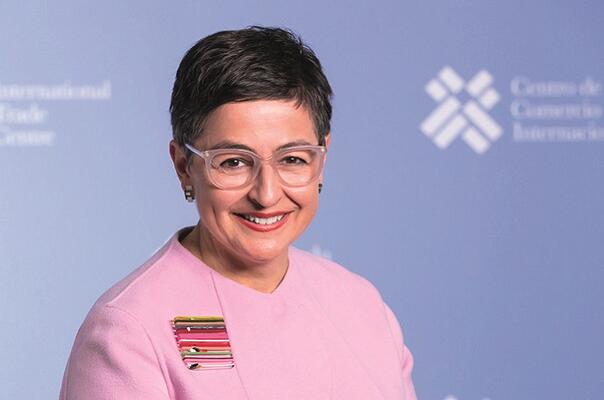
Financing for small firms (en)
In September 2015, the international community gathered at United Nations Headquarters to adopt the 2030 Agenda for Sustainable Development. An important component of ensuring the Sustainable Development Goals (SDGs) are achieved is the financing behind them. The Addis Ababa Action Agenda, agreed at the Third International Conference on Financing for Development in July 2015, aimed to place on the spotlight on the need to mobilise the necessary financing.
The Addis Ababa Action Agenda contained broad commitments on financing and creating an enabling environment for sustainable development at all levels. For micro, small and medium-sized enterprises (MSMEs) in developing countries – long known as drivers of prosperity – access to finance remains an ongoing challenge. In this issue of Trade Forum, we look at the financing landscape for MSMEs in developing countries given that this year’s United Nations General Assembly convenes its first High-level Dialogue on Financing for Development since the adoption of the Addis Ababa Action Agenda.
In that landmark document, the international community committed to “exploring ways to use market-oriented incentives to expand WTO-compatible trade finance and the availability of trade credit, guarantees, insurance, factoring, letters of credit and innovative financial instruments, including for micro, small and medium-sized enterprises in developing countries.”
That financing questions are one of the many priorities at the 74th General Assembly is a clear signal of the economic realities facing countries in the decade remaining before the Sustainable Development Goals must be met. Despite current trade tensions and signs of a global slowdown, ITC research highlights that there is indeed enough money in the system to make a difference to the financing needs of MSMEs in developing countries – but only if the structures to mobilise it are activated.
We now know that MSMEs have tremendous potential to make an impact on the SDGs with the employment they generate, the business practices they choose to adopt, the sectors in which they operate and their effect on innovation and diversification in the economy. ITC’s Small and Medium-Sized Enterprises Competitiveness Outlook (SMECO) 2019 suggests that these small firms can have a positive impact on 60 % of the 169 specific targets within the 17 SDGs.
A striking feature of the new discussions taking place in New York in September is the extent to which the development agenda is now also a climate change agenda: here too finance to MSMEs can play a role. The leverage that investors bring to smaller enterprises as backers means that newer, cleaner forms of economic activity can be germinated and propagated as part of their commercial growth.
A prospective investor’s most basic expectation is a reasonable return. While some SDG-related investments may only deliver so-called social returns – not a bad return – there are also incredible opportunities for private-sector development projects to deliver social and financial returns. Developing countries are full of MSMEs with commercially viable business ideas. This second issue of Trade Forum 2019 is equally full of new ideas for unblocking the financing they need.



